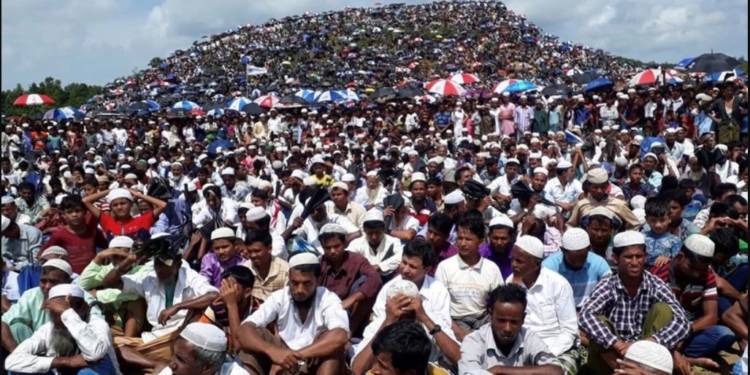Bangladesh has always been a congested country and the Rohingya situation has further exacerbated the situation. While Bangladesh continues to house lakhs of Rohingya refugees, the situation is deteriorating as over 100,000 Rohingya children have been born in the refugee camps which have unsuitable living conditions.
According to a new study, an estimated 108,037 Rohingya children have been born in refugee camps in Bangladesh and Myanmar over the past several years thus raising concerns over an impending disaster as the refugee camps are riddled with unsuitable living conditions.
The Rohingya refugees are almost entirely dependent on aid and have hardly access to education and healthcare thus raising concerns over the future of the children.
Bangladesh’s Cox Bazaar which houses the Rohingya refugees has over 75,000 students children living under the age of three which form almost 9% of the total refugee population. An estimated 1.1 million Rohingya Muslims reside in Bangladesh with almost half of the them being children.
“I’m worried about my children’s education, their future, their behavior,” said, the mother of three-year-old Runa, Hamida Begum to the humanitarian aid organisation, Save the Children.
She added, “I can’t give them whatever they ask for as we don’t have money. We can’t fulfil their dreams. We can’t love and take care of them properly. That’s why I feel very sad. I can’t provide them with good food. When they ask for anything, I can’t give it to them.” She also revealed that her daughter has suffered from chronic undernutrition her whole life.
Nay San Lwin, co-founder of the Free Rohingya Coalition said, “Formal education for the children is very important. I saw a lot of learning centers in the camps, but those are not going to help improve [their] education.” He added that these children “won’t have a future at all unless the world unites to act against the ongoing genocide in Myanmar.”
Bangladesh’s Rohingya problem is further exacerbating and asking the country to do more for the refugees won’t solve the problems in the backdrop of a massive population explosion as the growth rate in the camps has been over 10 per cent in just three years. To put things into perspective, Bangladesh has 1,260 people packed in every square kilometre of its territory. It doesn’t seem that it can handle more people, and the refugee problem requires the world to come together to come up with a solution.

























